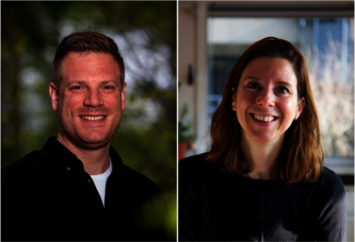The team, led by initiators Bart Wernaart (Fontys lecturer in ethics) and Daniëlle Arets (Fontys lecturer in journalism and responsible innovation), will spend the next two years examining practical, ethical, legal, organizational and financial issues that arise when AI is deployed. Wernaart: "Take the curfew riots in 2021. So many images of that were shared on social media that you could map entire timelines. You could use AI to follow specific people. The person who pushed over the station piano at Eindhoven Central Station, for example. That could provide a wealth of information and save a lot of time for editors. Were it not for the fact that we first need answers to ethical questions in particular. What ethical codes do you apply? What forms of accountability belong? And how do you prevent abuse? After all, wrong conclusions in the media can have major consequences for the democratic debate." said Wernaart.
The current state of investigative journalism
Since last October, a broad consortium has been working on the research. From Fontys colleges, this involves the departments of ICT, Big Data economics, communication and journalism. Furthermore, also Hogeschool Utrecht, partners such as MindLabs and parties from both the journalistic and the technological field cooperate. Wernaart: "We are very curious what role AI can have within investigative journalism. To what is already possible, and whether we can train AI for a specific purpose." Arets adds: "In addition, it is still unclear to editors for what type of investigative question the investment in AI is proportionate to the results. When does it save time? We are also researching that."
Raak grant for two-year research
They have two years for this research project. This is because of the Raak subsidy - financial support for research projects of universities of applied sciences in cooperation with SMEs - to which the consortium is entitled. Arets: "As a researcher you always want more time, because we are obviously going to encounter challenges that require a follow-up. Something in which our practice partners have a big say. Especially for those parties, this research has to deliver meaningful knowledge. But I think we should definitely succeed in reaching good insights in two years."
MindLabs as a connecting link
"MindLabs is involved in the project as a liaison officer." explains Arets. "All the necessary blood groups - journalists, AI experts and designers - work together there." Moreover, the ecosystem's contribution will only grow with the opening of the new building, she expects. "The building has various lab facilities, which will allow us to experiment extensively. In addition, the aforementioned researchers will also meet physically more often, which means that even more cross-pollinations will take place than is currently the case." Finally, the new building also offers opportunities to share findings and results even more actively than has been possible so far, she looks ahead. "In the MindLabs building we can give public lectures, record talk shows and organize debates around this project. That way we will bring the knowledge we are gathering to the general public with an interest in AI."

